Marie Cocco: Our Most Vulgar Instinct
The Iraq Study Group has offered its anticlimactic advice on the war, but how will we address that other quagmire in Cuba, where some 430 anonymous prisoners languish in limbo?WASHINGTON — The climax of the Iraq Study Group is an anticlimactic acknowledgement of what the American public knows and what even the president, in his own blinkered indignation, acknowledges. There is to be no graceful exit from Iraq.
The Democratic takeover of Congress, the agitation among Republicans who do not wish to be next to fall on the president’s sword, and the upcoming ascension of Robert “We’re-Not-Winning” Gates to head the Pentagon, all point to a messy and prolonged departure as the least-worst option. The study group provides a potential pathway out of Iraq, however dimly lit.
But who will lead us out of Cuba?
As a foreign policy debacle, the Bush administration’s detention and mistreatment of alleged terrorists — symbolized in its military prison camp at Guantanamo Bay, Cuba — is second only to the Iraq entanglement for its effect of having set much of the world, especially Muslims, against us. Ending the shame of Guantanamo does not have the urgency of sparing American troops from the carnage in Iraq. But repairing the damage of the Bush years — a long-term project now at last under way — requires it.
A first step is at hand in legislation promoted by Democratic Sens. Chris Dodd and Patrick Leahy. They seek to undo some of the worst of the assaults on the Constitution, and on America’s moral standing, contained in the pre-election legislation on military commissions.
In essence, the Military Commissions Act provided congressional approval of the Bush administration’s malfeasance. It wiped out any chance for non-citizens held by the U.S. anywhere in the world to challenge their detentions or demand evidence for them. It gave the president authority to declare any person (including a U.S. citizen) to be an “unlawful enemy combatant,” even if that person has never taken up arms. An “unlawful enemy combatant” can include any person who has “purposefully and materially supported” those who committed hostilities. The vagueness could ensnare anyone, for example, who has donated to a charity that later turns out to have terrorist ties.
The Dodd measure would restore the ancient right of habeas corpus to detainees so that they can contest their confinement. It would narrow the definition of an unlawful enemy combatant to include only those who directly participate in hostilities, the definition enshrined in international law. The military’s own reviews of detainee cases showed that more than half of the so-called “combatants” imprisoned at Guantanamo committed no hostile act against U.S. or coalition forces, according to an ongoing study of government documents by Seton Hall University Law School. Most were found only to have some unspecified “association” with individuals or groups purported to have terrorist links.
The “combatant status review tribunals” — the Pentagon’s term for the process it uses to declare someone an unlawful enemy combatant — are themselves a frightening farce. The latest Seton Hall review of official tribunal transcripts, published last month, shows that the government produced no witnesses at any hearing. It relied mostly on classified evidence that was considered conclusive — and which the detainee could not see. In 96 percent of the cases, authorities produced no documentary evidence for a detainee to review before his hearing. All requests by detainees to summon witnesses other than fellow prisoners at Guantanamo were denied.
Yet this is the only procedure the administration intends for all but about 80 of the 430 people currently held at Guantanamo. Only those charged with violating the laws of war or other grave offenses are to be tried in the newly authorized military commissions, according to a Pentagon spokesman, Cmdr. J.D. Gordon.
The rest languish, as U.S. authorities try to get their home countries or other nations to take them off our own soiled hands. There is to be no graceful exit from Guantanamo. “The question of what we do with Guantanamo is a huge question that nobody’s tackled so far,” says Jennifer Daskal of Human Rights Watch.
Newly empowered Democrats must delve into that which has been left officially unexamined for more than four years: Who is at the prison? Of what, exactly, are they accused? How many were rounded up by bounty hunters or captured far from any battlefield?
The Dodd measure would partly solve the problem of the detainees’ legal rights if, in fact, it could pass and then survive a presidential veto. But nothing will salvage America’s reputation, short of closing the prison that stands as a monument to our most vulgar instinct.
Marie Cocco’s e-mail address is [email protected].
Your support matters…Independent journalism is under threat and overshadowed by heavily funded mainstream media.
You can help level the playing field. Become a member.
Your tax-deductible contribution keeps us digging beneath the headlines to give you thought-provoking, investigative reporting and analysis that unearths what's really happening- without compromise.
Give today to support our courageous, independent journalists.

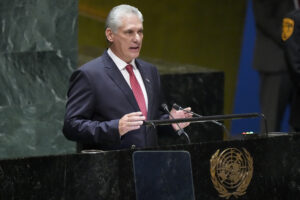
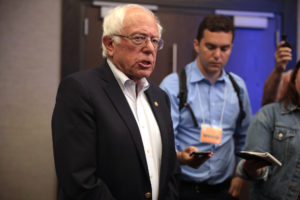
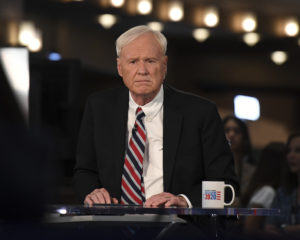
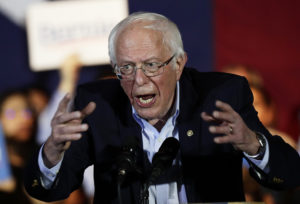
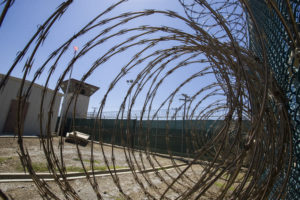
You need to be a supporter to comment.
There are currently no responses to this article.
Be the first to respond.